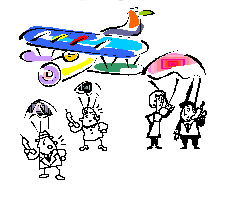Don't think portable electronic devices are a risk to flight? Think again


I remember one transcontinental flight that I took back in 2004. We were at 35,000 feet, somewhere over Iowa, and we were approaching a fearsome thundercloud. So I am thinking maybe the captain is on the radio talking to Minneapolis or Chicago flight control, trying to figure a way around the big gray boomer right in our path.
At the same time, some slacker wise-ass in the row directly behind mine was yacking away on his cell. The flight attendants were in the back, eating their meal. I turned my head backat the slacker and gave him a menacing look. He and his buddy snickered back with a "you try it" scowl.
Well, since you are reading this post, you can tell that we made it to our destination. But after reading an article in the March issue of IEEE Spectrum magazine called "Unsafe At Any Speed? Cellphones and Other Electronics Are More Of A Risk Than You Think," (sorry, no direct link available) I am that much more thankful our crew was able to obtain instructions that enabled them to steer out of harm's way.
No, this is not one of those articles written by a sensationalistic reporter out to grab headlines. The article's authors are Bill Strauss, technical activities chairman for the IEEE Electromagnetic Compatibility Society; M. Granger Morgan, head of the department of engineering and Carnegie Mellon; Jay Apt, an engineering and public policy professor at Carnegie Mellon and an active pilot; and Daniel Stancil, an IEEE fellow and electrical and computer engineering professor at Carnegie Mellon.
As part of an extensive series of tests, the RF spectrum on 37 domestic airline flights was measured with a set of instruments that included a dscone broadband antenna connected to a compact portable spectrum analyzer. The authors note that a laptop computer controlled the system and logged the data.
The article is packed with technical information that makes the case that Portable Electronic Devices can be hazardous to aircraft navigation. Here is a passage that encapsulates the author's concerns:
"Over the course of three months in late 2003, we investigated the possibility that portable electronic devices interfere with a plane's safety instruments by measuring the RF spectrum inside commercial aircraft cabins. What we found was disturbing. Passengers are using cellphones, on the average, at least once per flight, contrary to FCC and FAA regulations, and sometimes during the especially critical flight phases of takeoff and landing.
Although that number seems low, keep in mind that it represents the furtive activity of a small number of rule breakers. Should the FCC and the airlines allow cellphone use, the number of calls could rise dramatically.
In addition, regulations aready permit a wide variety of other portable electronic devices- from game machines to laptops with Wi-Fi cards- to be used in the air today. Yet our research has found that these items can interrupt the normal operation of key cockpit instruments, especially Global Positioning Systems (GPS) receivers, which are increasingly vital to safe landings.
The authors add that two different studies by NASA further support the idea that passengers' electronic devices dangerously produce interference in a way that lowers the safety margins for critical avionics systems.
And add this:
Our data and the NASA studies suggest to us that there is a clear and present danger: cellphones can render GPS instrument useless for landing.
Listen, readers. I know what it is like to be out of communication at 33,000 feet, chomping at the bit about whether a prospective client has made his or her decision, or needs more info. My cell- part of my BlackBerry, actually -is my lifeline.
But when I am flying, I am less concerned about my communication lifeline, and more concerned about my life. So what if we are circling, and I am going to be late to a meeting. I would rather be known as "Russell Shaw, the late," rather than "the late Russell Shaw."
I don't want to wind up like this:
That's why my laptop and BlackBerry are turned off, and why yours should be as well.